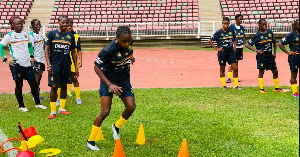Ndzana Amboune, 11, a pupil of CEII is suffering from haemophilia; a congenital bleeding disorder. He arrived at the University Teaching Hospital (CHU) on April 16, 2014 on crutches. He was accompanied by two of his junior brothers and his mother, Mrs Ndzana who told CT that two of her sons are suffering from haemophilia and the last one has symptoms of haemophilia as well.
She explained that when Ndzana Amboune was eight years old, he had pains in the knees and could not walk for two years. She said she and her husband did not know the cause of the illness but for her brother who had watched a programme on haemophilia on television and urged them to go to the hospital and consult.
This is the situation that several families face in Cameroon today. Many people are not yet aware of the disease. Haemophilia is a sex-linked congenital bleeding disorder in which only the male subjects (boys) are affected. They bleed longer than a normal person when they have wounds and they bleed mainly in the joints and muscles.
In the long run, that creates deformation of the joints and collapse of the muscles.At the end, the patient is not able to walk and carry out physical activity normally. Bleeding can also cause anaemia or death when the bleeding occurs in the vital organs such as lungs and brain, among others.
Dr. Tayou Tagny of the Yaounde Haemophilia Treatment Centre said 70 per cent of cases of haemophilia are transmitted from mother to child while 30 per cent can occur during life. Concerning the treatment of the disease, Dr Tayou said haemophilia care in Cameroon is organised in the Haemophilia Treatment Centre in the University Teaching Hospital. The centre was created in 2009 with the support of the World Federation of Haemophilia, "Hôpitaux Universitaires de Genève" and the University Teaching Hospital. Since its creation, 113 patients have been registered in the centre.
Dr. Tayou said diagnosis and care are provided everyday but there are still some challenges. The major challenges facing the centre include the lack of sensitisation and the need for a Strategy Plan and Sustainable Care programme.
Infos Santé of Monday, 21 April 2014
Source: Cameroon Tribune












